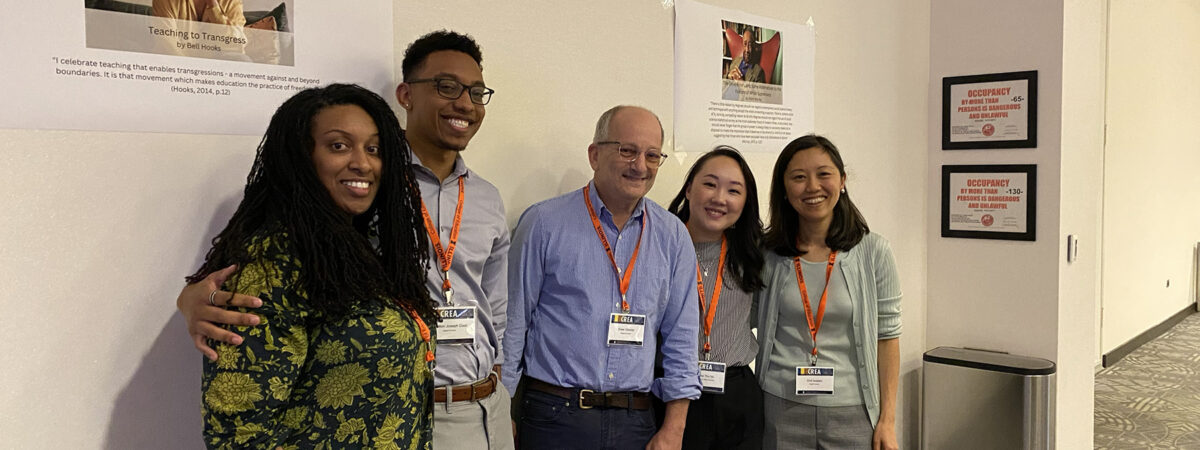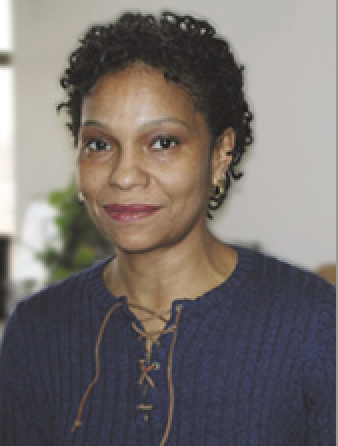
By educational assessment, we mean processes in education of gathering information about what students know and are able to do (e.g., tests/quizzes, observations, projects, written assignments, self-reflections, learning conferences) to inform next steps in their learning trajectories. Education assessment professionals are those whose job is to ensure that the process is a success, including envisioning, designing, reviewing, implementing, acting upon, and studying them. These individuals include, but are not limited to: teachers, administrators (district and school-based), data coaches, testing coordinators, data analysts, policymakers, curriculum specialists, test developers, psychometricians, and institutional researchers who work within educational spaces.
Drs. Carol Lee and Audry Qualls taught us that culturally responsive assessment practices should be rooted in understanding these diverse experiences, enabling students to demonstrate their capabilities in a way that aligns with their unique backgrounds and identities. Our assessment ancestor and founding director of the Center for Culturally Responsive Evaluation and Assessment, Dr. Stafford Hood, and his unwavering commitment to non-negotiable values of social justice, culture, and issues surrounding race remind us that principles are not optional but an essential foundation for equitable and inclusive assessment. Dr. Wade Boykin reminds us of the importance of fostering high-level knowledge and skills while moving away from pejorative terms when assessing those from non-mainstream social, racial, and cultural backgrounds. Dr. Boykin’s insights encourage a more inclusive notion of humanity, challenging the traditional norms and standards of traditional measurement and assessment practices.
Children do not come to schools as blank slates to be crafted in the manner we educators deem appropriate. Rather, they come to us as thoughtful individuals with developing cognitive processes and abilities that are partially shaped by environmental factors. – Dr. Audrey Qualls

There is an important need to continuously question traditional social science theories and measurement approaches, especially in terms of how well they serve our goals of supporting student learning. Albert Murray challenged the unquestioned reliance on traditional or mainstream assessment methodologies, emphasizing that these methods can be inherently biased and may perpetuate the disparities that have marginalized certain communities. Similarly, Dr. Sylvia T. Johnson highlighted the punitive and threatening rhetoric often associated with high-stakes testing and how these practices can deter meaningful and constructive learning experiences. Her insights illustrate the detrimental impact of traditional assessment approaches on students and teachers in marginalized communities while highlighting the importance of more culturally responsive and nurturing assessment practices to encourage motivation, engagement, and constructive learning.
If we want to make structural changes, we must first consider the harms and damages that were caused by the motivations and uses of assessments throughout our history and—as articulated by Dr. Gavin Henning—move towards a system of practices that disrupt systemic barriers, nurture student agency, and advocate for equity and justice as fundamental principles. As part of this liberatory movement, we believe that culturally responsive assessment practices should not only evaluate knowledge and skills, but empower students to break free from the constraints many traditional assessment practices have often imposed. We appreciate the guidance of Dr. bell hooks, who proclaimed that education should be a practice of freedom.
“[Culturally responsive performance-based assessments] must involve tasks that draw on culturally based funds of knowledge from both the communities and families of the students as well as the knowledge the students bring from their youth culture.” – Dr. Carol Lee

In the pursuit of this much-needed transformation in the area of assessment, Digital Promise, the Center for Measurement Justice, and the Center for Culturally Responsive Evaluation and Assessment recently hosted a summit that brought together a group of assessment professionals who are working toward culturally responsive practices. The group collaborated towards helping to prepare the next generation of assessment professionals who center cultural responsiveness in their work. In engaging in this process, we looked to our assessment elders and ancestors for guidance and support. We hope to amplify their wisdom and voices, and hope that you will join us as we share our journey and seek to expand our network in a series of forthcoming blog posts and webinars.
Find inspiration for culturally responsive assessment in the assessment elder and ancestor posters used in our convening (quotes sourced from convening participants, and poster curated by Thao Vo).
Follow our journey through our organizational websites and mailing lists:
Qualls, A. L. (1998). Culturally Responsive Assessment: Development Strategies and Validity Issues. The Journal of Negro Education, 67(3), 296–301. https://doi.org/10.2307/2668197
Lee, C. D. (1998). Culturally responsive pedagogy and performance-based assessment. Journal of Negro Education, 268-279. https://www.jstor.org/stable/2668195